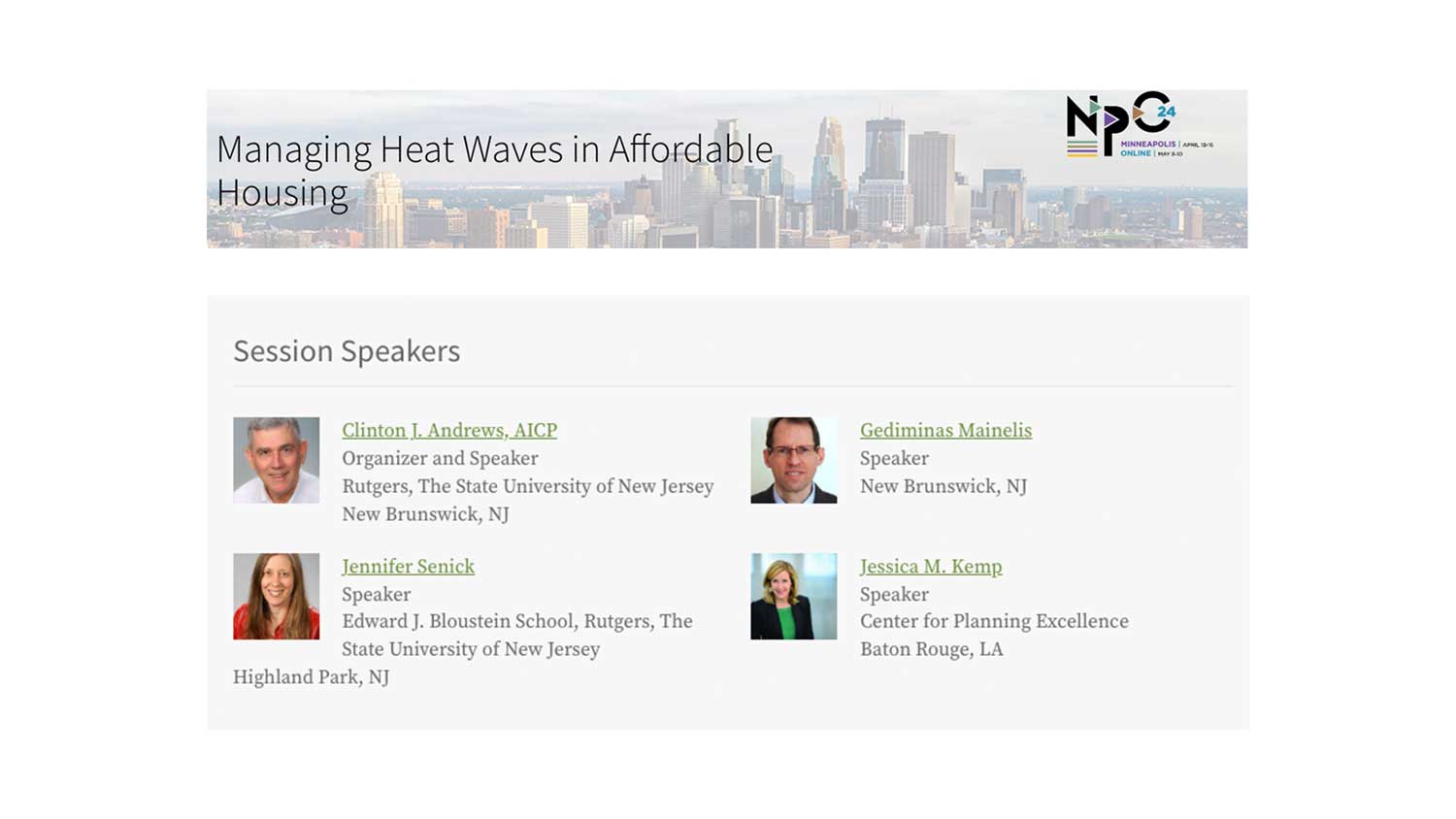More prevalent heat waves due to climate change are adversely affecting those who live in affordable housing. This is especially true for young, old, and disabled residents who may be physically frail and have limited mobility and access to information, as well as low incomes. Most U.S. landlords are not required to provide cooling systems for residents. Historically, this has led to illnesses and even deaths during heat waves. We share results of a new study of how residents cope with heat waves at the Housing Authority of the City of Elizabeth, New Jersey (HACE), located in an air-shed surrounded by Newark Airport, a petrochemical refinery complex, a major seaport, and the New Jersey Turnpike. We interviewed two dozen residents at three sites and equipped their apartments to measure indoor conditions and residents’ adaptive responses. We found that residents cope by using fans, operable windows, and air conditioning when available and affordable. They also visit nearby amenities, including city-provided cooling centers and parks, churches, and malls. We find persistent, health-threatening maladaptation too, especially smoking indoors. The bottom line? Residents adapt to heat waves within the constraints of their local physical, financial, and social environments, but depend on neighboring institutional actors to play key empowering roles.
Managing Heat Waves in Affordable Housing – American Planning Association 2018 National Planning Conference
Citation:
Senick, Jennifer, Andrews, Clinton, Mainelis, Gediminas, He, Ruikang, Tsoulou, Ioanna, Plotnik, Deborah, Thirumurugesan, Sanjeevi, Morgan, Brian, Gonzalez Mena, Stephania, Kemp, Jessica. (2018, April) Managing Heat Waves in Affordable Housing. American Planning Association 2018 National Planning Conference, New Orleans, April 21, 2018
